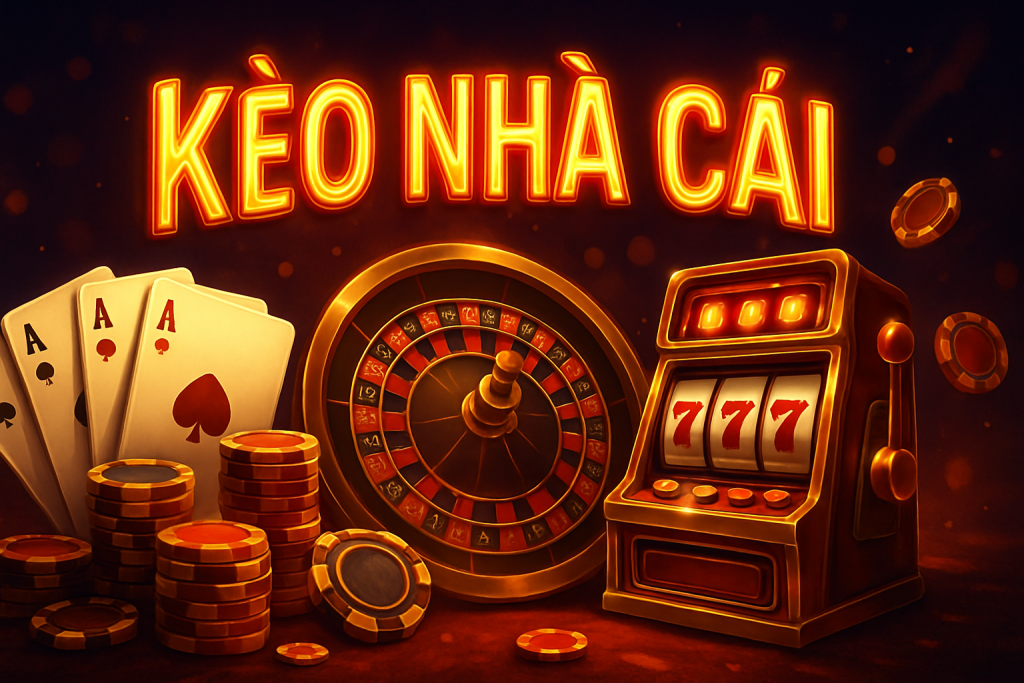
In the fast-paced world of online casinos and sports betting, having a psychological edge can be just as important as having a solid strategy. Today’s bettors are no longer just relying on chance—they’re combining analytical thinking, emotional discipline, and informed choices to improve their odds. With access to platforms like kèo nhà cái players are equipped with accurate data and expert analysis to stay ahead in their betting journey
One of the most important aspects of smart betting is emotional control. Many players fall into the trap of “chasing losses”—a common psychological pattern where players try to recover lost money by placing even riskier bets. This behavior often leads to bigger losses. Smart bettors understand that not every bet will be a win and accept losses as part of the game. The ability to walk away or pause when needed separates a disciplined player from a reckless one.
Another key psychological principle is avoiding the gambler’s fallacy. This is the mistaken belief that past outcomes affect future probabilities. For instance, if a roulette wheel has landed on black five times in a row, someone might believe red is “due” next. In reality, each spin is independent. Successful bettors stick to logic and probabilities rather than relying on gut feelings or patterns that don’t truly exist.
Bankroll management is also closely tied to psychology. Having a clear betting budget prevents emotional decision-making and reduces the pressure to win every time. Professional bettors often use systems like the flat betting method, where each wager is a fixed percentage of their bankroll. This helps minimize losses during losing streaks and protect long-term profitability.
The rise of real-time data and predictive analytics has made decision-making easier and more accurate. But it’s not just about having access to the data—it’s about how you use it. Platforms offering odds comparisons, match histories, and expert commentary can guide users toward smarter betting decisions. However, it’s up to the bettor to process this information calmly and rationally, especially when the pressure is high during live games.
Social proof can also influence betting psychology. Seeing others win big on forums or social media might tempt users to mimic their bets or take unnecessary risks. While sharing tips and experiences is valuable, it’s crucial to remember that every bettor’s risk tolerance and strategy should be personal. What works for one person may not work for another.
Another psychological aspect is the illusion of control. Many bettors believe they have more control over outcomes than they actually do. For example, choosing their own numbers in a lottery or selecting a “lucky” sports team can create a false sense of power. Recognizing and correcting these mental biases can help players make more grounded and realistic choices.
One powerful tool bettors can use is visualization. Just like athletes visualize winning before a game, successful gamblers often visualize the outcomes of their strategies, including managing wins and losses. This mental rehearsal helps prepare them emotionally and increases their resilience when things don’t go as planned.
In addition, setting clear goals can help maintain focus. Instead of vague ambitions like “winning big,” smart bettors create realistic targets such as earning a certain percentage return per month or maintaining a steady win-loss ratio. These goals encourage consistency and long-term thinking, which are essential for success in betting.
Understanding timing is another edge. Not every day is a good betting day. Sometimes the best bet is the one you don’t place. Waiting for the right moment—whether it’s betting on a specific game, waiting for injury updates, or watching odds shift—can make all the difference. Rushed bets often lead to mistakes and regret.
In conclusion, developing a psychological edge in the betting world means combining discipline, patience, and self-awareness. Bettors who manage their emotions, avoid cognitive biases, and rely on logic over impulse are far more likely to succeed. With the right mindset and a commitment to long-term thinking, the world of online betting can be both enjoyable and rewarding.